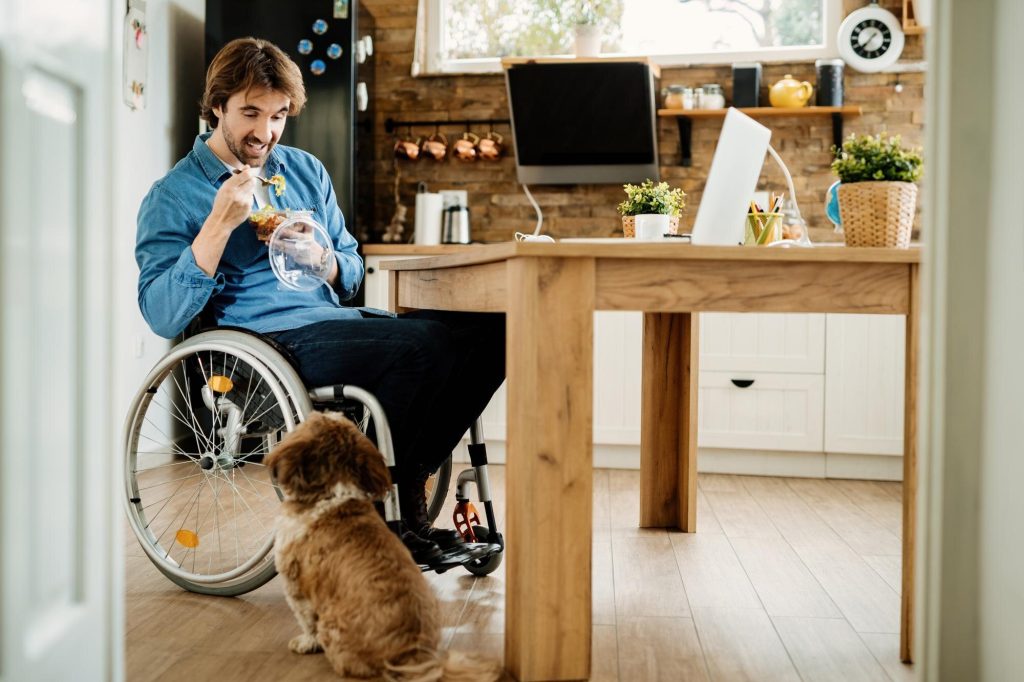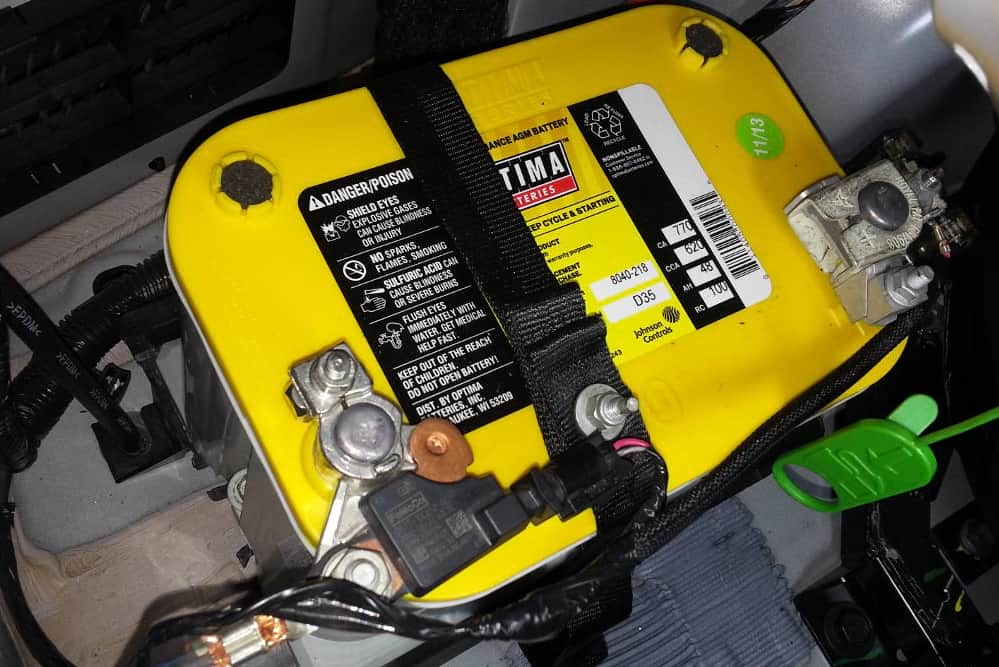Navigating the world of disability rights and resources can be a daunting task. Especially when it comes to Specialist Disability Accommodation (SDA).
SDA is a crucial part of the National Disability Insurance Scheme (NDIS). It provides funding for housing that caters to the specific needs of people with disabilities. But understanding how to access and maximize these resources is not always straightforward.
This guide aims to shed light on the intricacies of SDA. It will delve into eligibility criteria, accommodation options, and the application process for SDA funding. It will also explore the legal rights of individuals with disabilities in relation to housing and accommodation.

Whether you are an individual with a disability, a family member, a caregiver, or a professional in the disability support sector, this guide is for you. It will provide you with the knowledge and resources to navigate the SDA landscape with confidence.
Let’s embark on this journey to better understand SDA disability rights and resources.
Understanding SDA Disability
SDA, or Specialist Disability Accommodation, is a key component of the NDIS. It is designed to provide housing solutions for people with disabilities who have extreme functional impairment or very high support needs.
The goal of SDA is to foster independence and social inclusion. It does this by providing funding for housing that is tailored to the unique needs of the individual. This includes features such as wheelchair accessibility, sensory modifications, and safety measures.
Here are some key points to understand about SDA:
- It is not a one-size-fits-all solution. The type and level of SDA funding a person receives depends on their individual needs and circumstances.
- SDA funding is separate from other NDIS supports. It specifically covers the cost of the physical environment where a person lives.
- Not everyone with a disability will be eligible for SDA. It is designed for those with extreme functional impairment or very high support needs.

What is Specialist Disability Accommodation (SDA)?
Specialist Disability Accommodation, or SDA, refers to housing that has been specially designed or modified to suit the needs of people with disabilities. It is part of the NDIS, a scheme that provides support to Australians with disabilities.
SDA housing can take many forms. It could be a unit in a residential complex, a standalone house, or a shared living arrangement. The key is that it is designed or modified to meet the specific needs of the person living there.
The aim of SDA is to provide people with disabilities the opportunity to live as independently as possible. It also seeks to enhance their quality of life and participation in the community.
The Purpose and Impact of SDA on Quality of Life
The purpose of SDA is to provide suitable housing for people with disabilities who have extreme functional impairment or very high support needs. By doing so, it aims to enhance their quality of life and promote independence.
SDA can have a profound impact on a person’s quality of life. Having a home that caters to their specific needs can increase their safety, comfort, and ability to perform daily tasks. It can also foster a sense of independence and self-determination.
Moreover, SDA can promote social inclusion. By providing housing that is integrated within the community, it can facilitate participation in community activities and social interactions. This can greatly enhance the mental and emotional well-being of individuals with disabilities.
Eligibility and Access to SDA
Accessing SDA starts with determining eligibility. Not everyone with a disability will qualify for SDA. It is specifically designed for those with extreme functional impairment or very high support needs.
Eligibility is determined by the NDIS. They assess the individual’s needs and circumstances to decide if SDA is appropriate. This includes considering the person’s functional capacity, their current living situation, and their long-term goals.
Here are some key points to understand about SDA eligibility:
- It is based on the individual’s needs and circumstances, not their specific disability.
- The person must require specialist housing due to their extreme functional impairment or very high support needs.
- The person must be an NDIS participant and have SDA included in their plan.
Determining Your Eligibility for SDA
Determining your eligibility for SDA is a crucial first step. This process involves an assessment by the NDIS. They will consider your functional capacity, your current living situation, and your long-term goals.
The NDIS will also consider whether SDA is the most cost-effective solution for your housing needs. This means they will compare the cost of SDA with other housing options. The aim is to ensure that the funding is used in the most efficient and effective way.
Remember, SDA is not for everyone. It is specifically designed for those with extreme functional impairment or very high support needs.
How to Apply for SDA Funding
Applying for SDA funding involves several steps. First, you need to request an SDA assessment from the NDIS. This involves providing information about your disability, your current living situation, and your housing needs.
Once the NDIS has assessed your eligibility, they will include SDA in your NDIS plan if appropriate. This will outline the type and level of SDA funding you will receive. It will also specify the features your SDA housing must have to meet your needs.
After you have your SDA funding approved, you can start looking for suitable SDA housing. This may involve working with an SDA provider or a support coordinator to find the right accommodation for you.
SDA Accommodation Options
SDA provides a range of accommodation options to suit different needs and preferences. These options are designed to provide a safe, comfortable, and accessible living environment for people with disabilities.
The type of SDA accommodation you can access depends on your individual needs. This is determined by the NDIS during your SDA assessment. They will consider your functional capacity, your support needs, and your personal preferences.
Here are some key points to understand about SDA accommodation options:
- They range from apartments to houses, and from shared living arrangements to individual units.
- They are designed to be accessible and adaptable to meet the needs of people with disabilities.
- They must meet certain design standards to ensure they are safe and suitable for people with disabilities.
Types of SDA Housing and Accommodation
There are several types of SDA housing and accommodation available. These include apartments, houses, and shared living arrangements. The type of accommodation you can access will depend on your individual needs and preferences.
Each type of SDA accommodation must meet certain design standards. These standards ensure the accommodation is safe, accessible, and suitable for people with disabilities. They cover things like the layout of the accommodation, the accessibility features it must have, and the safety measures it must include.
The aim of these standards is to ensure that all SDA accommodation provides a high quality of life for its residents. This includes promoting independence, social inclusion, and community participation.
Finding and Securing SDA Housing
Finding and securing SDA housing can be a complex process. It involves identifying suitable accommodation options, assessing their suitability, and negotiating with SDA providers.
The first step is to identify potential SDA housing options. This may involve researching online, contacting SDA providers, or working with a support coordinator. The aim is to find accommodation that meets your needs and preferences.
Once you have identified potential options, you need to assess their suitability. This involves considering their location, accessibility features, and design standards. You also need to consider the cost of the accommodation and how it fits with your SDA funding.
Finally, once you have found suitable accommodation, you need to negotiate with the SDA provider. This involves agreeing on the terms of your accommodation, including the rent and the services provided. It’s important to ensure that these terms meet your needs and are in line with your SDA funding.
Legal Rights and Advocacy
Understanding your legal rights is crucial when navigating SDA. These rights are designed to protect you and ensure you receive the support you need. They cover areas such as access to SDA, the quality of SDA accommodation, and your rights as a tenant.
Here are some key points to understand about your legal rights in SDA:
- You have the right to access SDA if you meet the eligibility criteria.
- You have the right to live in SDA accommodation that meets certain design standards.
- You have the right to be treated fairly and without discrimination by SDA providers.
Understanding Your Legal Rights in SDA
Your legal rights in SDA are protected by law. This includes the right to access SDA if you meet the eligibility criteria. It also includes the right to live in SDA accommodation that meets certain design standards.
These rights are designed to ensure you receive the support you need. They also protect you from unfair treatment by SDA providers. It’s important to understand these rights and to assert them if necessary.
If you feel your rights are not being respected, you can seek legal advice. There are many organizations that can provide this advice, including disability advocacy groups and legal aid services.
Advocacy and Support Networks
Advocacy and support networks play a crucial role in accessing SDA. They can provide advice, support, and representation to help you navigate the SDA system. They can also help you assert your rights and resolve any issues you may encounter.
There are many different types of advocacy and support networks. These include disability advocacy groups, legal aid services, and peer support networks. The type of support you need will depend on your individual circumstances.
It’s important to reach out to these networks if you need help. They can provide valuable advice and support, and can help you navigate the complex SDA system.
Navigating SDA Funding and Costs
SDA funding is a crucial aspect of accessing disability accommodation. It’s designed to cover the costs of SDA accommodation and related expenses. Understanding how this funding works can help you plan for your accommodation needs.
Here are some key points to understand about SDA funding:
- SDA funding is provided by the NDIS.
- The amount of funding you receive depends on your individual needs and circumstances.
- SDA funding can be used to cover the costs of SDA accommodation and related expenses.
How SDA Funding is Calculated
SDA funding is calculated based on your individual needs and circumstances. This includes factors such as the type of accommodation you need, the level of support you require, and your personal goals and aspirations.
The NDIS will assess your needs and determine the amount of funding you are eligible for. This process involves a comprehensive assessment of your disability and its impact on your daily life.
It’s important to provide accurate and detailed information during this assessment. This will help ensure you receive the appropriate amount of funding to meet your accommodation needs.
Managing Financial Planning for SDA Accommodation
Managing financial planning for SDA accommodation can be challenging. It involves understanding the costs of SDA accommodation, budgeting for these costs, and managing your SDA funding effectively.
One of the first steps is to understand the costs of SDA accommodation. This includes the cost of rent, utilities, and any additional services or supports you may need.
Next, you’ll need to budget for these costs. This involves setting aside a portion of your SDA funding to cover these expenses. It’s important to monitor your spending and adjust your budget as necessary.
Finally, you’ll need to manage your SDA funding effectively. This involves using your funding wisely and ensuring it’s used to meet your accommodation needs. It’s important to keep track of your funding and to seek advice if you’re unsure about how to manage it.
Overcoming Challenges and Ensuring Compliance
Navigating the SDA landscape can present several challenges. These can range from understanding complex policies to dealing with bureaucratic hurdles. However, with the right approach, these challenges can be overcome.
Here are some common challenges and strategies to address them:
- Understanding SDA policies: Seek advice from professionals or organizations specializing in disability rights and services.
- Dealing with bureaucracy: Be patient, organized, and persistent. Keep records of all interactions and documents.
- Finding suitable accommodation: Research and visit multiple options before making a decision.
Addressing Common Challenges in Accessing SDA
Understanding SDA policies can be a daunting task. They are often complex and can be difficult to interpret. Seeking advice from professionals or organizations specializing in disability rights and services can be helpful.
Dealing with bureaucracy can be frustrating. It’s important to be patient, organized, and persistent. Keep records of all interactions and documents. This can help you navigate the process more smoothly.
Finding suitable accommodation can also be a challenge. It’s important to research and visit multiple options before making a decision. This can help you find an accommodation that best meets your needs and preferences.
Ensuring SDA Accommodations Meet Evolving Needs
SDA accommodations should be adaptable to meet evolving needs. This means they should be designed to accommodate changes in your health, mobility, or lifestyle.
Regular reviews and updates to your SDA plan can help ensure your accommodation continues to meet your needs. This involves assessing your current accommodation and identifying any changes that may be needed.
It’s also important to communicate any changes in your needs or preferences to your SDA provider. This can help them adjust your accommodation or services as needed.
Resources and Further Assistance
Navigating SDA disability rights and resources can be complex. However, there are numerous organizations and tools available to assist you. These resources can provide valuable guidance and support throughout your SDA journey.
Here are some resources to consider:
- Disability advocacy organizations: These can provide advice, support, and resources to help you navigate SDA.
- Online tools and resources: Websites, forums, and online tools can provide valuable information and support.
- Legal advice: Lawyers specializing in disability rights can provide advice on your legal rights and obligations.
Organizations and Tools for SDA Support
Disability advocacy organizations can be a valuable resource. They can provide advice, support, and resources to help you navigate SDA. This can include information on eligibility, funding, and accommodation options.
Online tools and resources can also be helpful. Websites, forums, and online tools can provide valuable information and support. They can help you understand SDA policies, find suitable accommodation, and connect with others in similar situations.
Legal advice can also be beneficial. Lawyers specializing in disability rights can provide advice on your legal rights and obligations. They can help you understand your rights under SDA and how to assert them.
Staying Informed: Updates and Changes in SDA Policy
Staying informed about updates and changes in SDA policy is crucial. This can help you ensure you’re receiving the benefits and services you’re entitled to.
Consider subscribing to newsletters or updates from disability advocacy organizations or government agencies. This can help you stay up-to-date with the latest changes and developments in SDA policy.









Leave a Reply